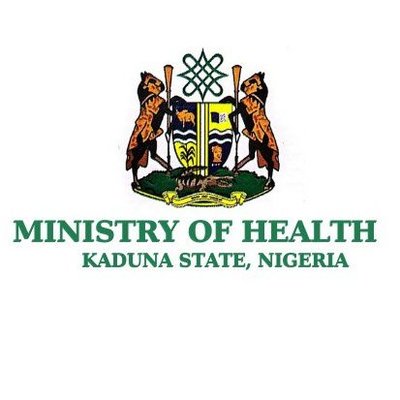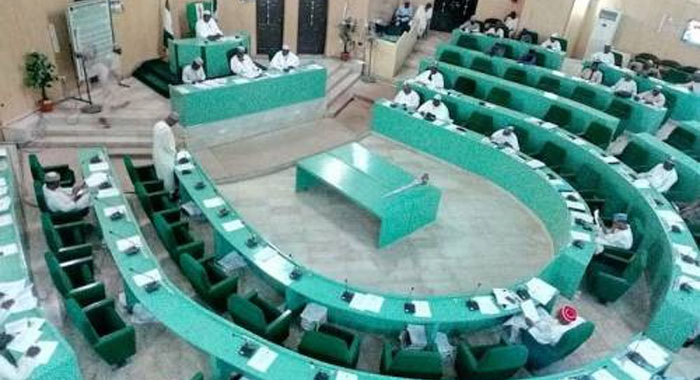Health
FG to eliminate Neglected Tropical Diseases by 2027 — Official
The Federal Government says it will eliminate Neglected Tropical Diseases (NTDs) in Nigeria by 2027, ahead of the World Health Organisation’s (WHO’s) 2030 target.
Deputy Director and Programme Manager, National Trachoma Elimination Programme, Federal Ministry of Health, Dr Nicholas Olobio stated this at a two-day National Trachoma Quarterly Review meeting on Thursday in Abuja.
Olobio said that the WHO Roadmap was expected to eliminate NTDs, including trachoma by 2030.
He said that Nigeria had made so much progress and expressed confidence that the diseases would be eliminated in the country by 2027.
“So far, Nigeria is at about 85 per cent because when we started, we had about 38 million Nigerians at risk of going blind due to trachoma.
“But it has been reduced significantly to about 3.7 million Nigerians, so you will see that a lot of progress has been made, with support from our partners,” he said.
He added that the states were working in partnership with the Local Government Areas to implement strategies, guidelines, and carry out activities towards the elimination of NTDs.
According to him, Nigeria has achieved so much progress all the state are following the guidelines.
He particularly said that Adamawa, Ebonyi, Bauchi, Kano and Katsina states have made much progress towards the elimination of NTDs.
“Medicines alone cannot deal with NTDs, but we inculcate water, sanitation, hygiene, and behavioural change.
“People need to stop the practice of open defecation. Even in Abuja, there is open defecation.
“So, we must look for ways to change people’s behaviour so that they can improve their sanitation practices,” he said.
Also, Prof. Caleb Mpyet, Chairman, National Trachoma Taskforce and Sightsavers Global Trachoma Mapping Epidemiologist, said that the meeting would review the level of SAFE strategy for trachoma implemented in each state as recommended by the WHO.
He said that Benue and Bauchi States were almost eliminating the diseases, and expressed hope that they would get there by the end of 2023.
“Jigawa is also making a lot of progress. If there is any state that we may still be working on after this year, it may be Borno and Yobe states where insecurity has been a problem,” he said.
On Nigeria’s target to eliminate NTDs by 2027, he said, “usually in life, you set your target and if you do not reach there, you reach somewhere near.
“We had some setbacks because of the COVID-19 pandemic, and that brought us back by two to three years. So, if we do not meet the target by 2027, we may reach the target by 2029.”
NTDs are a diverse group of 20 conditions that are mainly prevalent in tropical areas, where they affect more than one billion people who live in impoverished communities.
These diseases are “neglected” because they are almost absent from the global health agenda, receive little funding, and are associated with stigma and social exclusion.
Nigeria carries around 25 per cent of Africa’s NTDs burden, making it one of the most endemic countries in the world for these debilitating conditions.
Nigeria inaugurated a road map in 2021 to reach global targets in the prevention, control, elimination, and eradication a diverse set of NTDs and disease groups by 2030.
The roadmap aims to renew momentum, proposes strategies that intersect multiple diseases and advances actions focused on integrated platforms for the delivery of interventions.
Health
FG bans use of foreign syringes, needles in tertiary hospitals

The Federal Government has mandated all Chief Medical Directors (CMDs) and Medical Directors (MDs) of Federal Tertiary Hospitals to procure needles and syringes solely from NAFDAC-approved local manufacturers.
The new directive is contained in a circular addressed to all CMDs and MDs signed by the Minister of State for Health, Dr Tunji Alausa, on Friday.
The minister said that the directive was aimed at boosting domestic production and shielding the country’s manufacturing sector from the influx of foreign goods.
The circular also mandated NAFDAC to stop issuing licences for the importation of foreign manufactured needles and syringes.
Alausa said the health sector had dentified local pharmaceutical industries that produce needles and syringes that were in serious trouble because of the practice.
He also said that out of the nine local pharmaceutical companies that produced needles and syringes eight years ago, six have folded up due to the dumping of largely substandard goods into the market.
“Mr President has directed that this must stop. We all agreed to take the necessary steps to immediately remedy this sad situation.
“Pursuant to this, NAFDAC has been mandated to stop issuing licences for the importation of foreign manufactured needles and syringes.
“It is also to de-list companies involved in the importation of these products going forward,” he said.
Alausa said ”all our tertiary hospitals are hereby directed to procure needles and syringes for your hospital needs from only the NAFDAC-approved local manufacturers listed below are listed either directly or through any of their vendors.
“EL-Salmat Pharmaceuticals Company Ltd Block, Brand Name: Salmaject, HMA Medical Ltd., with brand Name: Deleject and Afrimedical Manufacturing and Supplies Ltd.”
He also listed some of the distributors of the listed companies in some states of the Federation for easy access to assist in making the procurement process easier in the various institutions.
Health
KDSG trains 180 Red Cross volunteers on Lassa Fever intervention


The Kaduna State Ministry of Health has begun a three-day training for 180 Red Cross volunteers on Lassa fever intervention.
The training, which is facilitated by the ministry and funded by the Red Cross, is meant to equip the volunteers selected from 5 LGAs in the state with necessary skills.
The volunteers were drawn from Zaria, Igabi, Kaduna South, Kaduna North and Chikun Divisions.
The State Epidemiologist, Dr Jeremiah Dikwu, said the volunteers were trained with the knowledge needed to massively intervene during cases of Lassa fever in the state.
He said that the intervention would include Risk Communication and Active Case Search, Psychological First Aid, Rodent Control and Hygiene Promotion for the next 3 months.
Dikwu said the training started with 30 volunteers on surveillance and would end with the training of 150 volunteers on Risk Communication and Community Engagement .
According to him, Lassa fever is a viral hemorrhagic fever transmitted by rats.
He added that Lassa fever has been known since the 1950s, but the virus was not identified until 1969, when two missionary nurses died from it in the town of Lassa in Nigeria.
Dikwu added that Lassa fever was caused by a single stranded RNA virus and disseminated systemic primary viral infection.
“The main feature of fatal illness is impaired or delayed cellular immunity leading to fulminant viraemia,” he said
The epidemiologist said that Lassa fever presented symptoms and signs indistinguishable from those of febrile illnesses such as malaria and other viral hemorrhagic fevers such as Ebola.
“It is difficult to diagnose clinically but should be suspected in patients with fever (e”38°C) not responding adequately to antimalarial and antibiotic drugs.
“The most useful clinical predictors of Lassa fever are fever, pharyngitis, retrosternal pain, and proteinuria for diagnosis; and fever, sore throat, and vomiting for outcome,” Dikwu said.
He said that Ribavirin and general support were needed.
“Ribavirin is almost twice as effective when given intravenously as when taken orally, and if given within six days of the start of illness it may reduce deaths by 90 percent.
“Dehydration, oedema, hypotension, and poor renal function are common; fluid replacement or the use of blood transfusion requires careful monitoring,” he said.
Dikwu said the volunteers would be carrying out Risk communication and Community engagement, Active Case Search, Psychological First Aid, Rodent Control and Hygiene Promotion
Health
Assembly passes Kano Pre-Marital Health Screening Bill


Kano State House of Assembly has passed a bill for a law to compel intending couples to undergo HIV, hepatitis and sickle cell anaemia screening before marriage.
The passage followed deliberations in the Committee of the Whole House during plenary session,
presided over by the Speaker, Ismail Falgore on Monday in Kano.
After deliberations, the lawmakers approved the 3rd reading of the bill, read by the Deputy Clerk, Alhaji Nasiru Magaji.
Shortly after passage of the bill, the Majority Leader of the house, Lawan Hussein (NNPP-Dala), stated that “any person
intending to marry shall first submit self for medical examinations.”
He said the bill was considered and passed after the 3rd reading, following various legislative processes.
The leader further said that the bill was passed because the state had been battling with different health issues, including
HIV because people go into marriages without medical screening.
He said that the bill, if signed into law, would save many lives and curb the spread of life-threatening diseases.
“The bill will safeguard the health of citizens by institutionalising pre-marital testing to check the spread of diseases
like hepatitis, HIV and sickle cell anaemia,” he added.
-
capital market2 years ago
Rt.briscoe, FBNH, Others halts negative performance of stock market
-
Finance3 months ago
Court orders Sen. Victor Umeh to repay N136m bank debt to AMCON
-



 Abuja Update2 months ago
Abuja Update2 months agoUNDP, FG partnership needed to achieve inclusion, equity- Minister
-
Abuja Update1 month ago
Banks drive stock market performance with N147bn gain
-



 Business1 week ago
Business1 week agoTingo Group unveils Tingo Electric, Tingo Cola drink at Lagos launch
-



 Health2 weeks ago
Health2 weeks agoCapacity training will reduce migration of health workers- NPHCDA
-
News4 months ago
Oil thieves sponsoring malicious media campaign against Navy – Spokesman
-



 Infotech1 month ago
Infotech1 month agoWorld Backup Day: NITDA urges Nigerians to ensure backup of data




